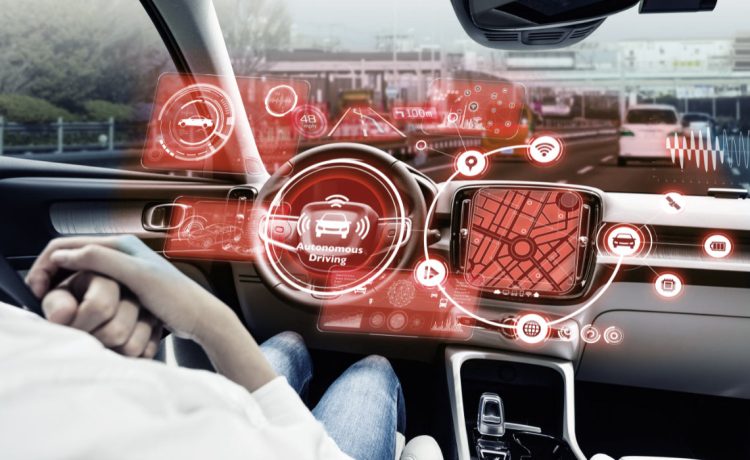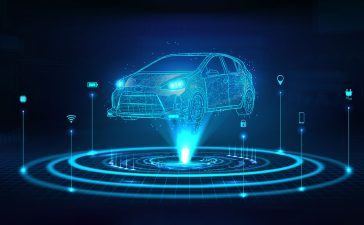The automotive industry, once known for its slow-moving pace of change, is now undergoing a profound transformation. This evolution is being shaped by cutting-edge technologies, environmental concerns, shifting consumer expectations, and new business models. What was once dominated by internal combustion engines and traditional manufacturing processes is rapidly giving way to electric vehicles (EVs), autonomous driving technology, digital connectivity, and a more sustainable approach to production and business operations. As automotive companies look to stay ahead in a fiercely competitive and fast-evolving market, experts are offering valuable insights into how top companies are navigating these changes. In this article, we explore what industry leaders and experts have to say about the automotive transformation being championed by some of the top players in the industry.
1. The Push Toward Electrification
Electric vehicles are no longer just a futuristic concept but a present-day reality, with companies such as Tesla, BMW, and Volkswagen at the forefront of this transformation. According to automotive experts, the shift to electric mobility is one of the most significant changes in the industry in decades. While early adopters of electric technology were met with skepticism, the proliferation of EVs on the road today underscores the changing tides.
“Electrification is the cornerstone of the future of mobility,” says Anupam Agarwal, a global automotive expert. “Top companies are recognizing that electrifying their fleets isn’t just about adhering to government regulations; it’s about positioning themselves for long-term success as consumer demand for sustainable options grows.”
Volkswagen, for example, has committed to becoming carbon-neutral by 2050, with ambitious goals for its electric vehicle lineup. Tesla, the undisputed leader in electric vehicle innovation, has continued to set benchmarks with its electric cars, pushing other manufacturers to accelerate their own EV development.
Experts agree that the push toward electrification is not just about adopting new vehicle types; it’s also about transforming entire manufacturing processes, supply chains, and energy infrastructure. This shift involves rethinking the way carmakers design, produce, and sell vehicles. For example, companies like General Motors and Ford are investing heavily in electric vehicle platforms, which will allow them to develop a variety of EV models quickly and efficiently.
2. Autonomous Driving: A Game-Changer for the Industry
Another area where automotive transformation is creating ripples is autonomous driving. The race to develop fully autonomous vehicles is one of the most closely watched aspects of the industry, with experts and major automakers pouring billions of dollars into research and development. Leading players like Waymo, a subsidiary of Alphabet, and traditional manufacturers such as Ford and Toyota, are heavily investing in self-driving technology.
While experts have differing opinions on when fully autonomous vehicles will become mainstream, many agree that the technology will fundamentally alter the nature of transportation. According to Professor John W. Langford, an expert in autonomous systems at MIT, “Autonomous vehicles are not just about technology; they are about changing the way we think about mobility.”
For car manufacturers, the development of autonomous vehicles presents both opportunities and challenges. The benefits of autonomous driving include enhanced safety, reduced traffic congestion, and a shift away from car ownership models to ride-sharing and subscription services. Experts like Langford note that this could significantly reduce the need for car ownership, leading to more flexible, accessible, and sustainable mobility solutions. However, companies must also contend with regulatory hurdles, technological limitations, and the challenge of building consumer trust.
3. Digital Connectivity and the Rise of the Connected Car
Experts agree that the automotive industry is undergoing a massive digital transformation, with connectivity at its core. The modern car is no longer just a means of transportation—it is becoming an extension of the digital world. With advanced infotainment systems, over-the-air updates, vehicle-to-everything (V2X) communication, and integration with smartphones and other devices, today’s cars are more connected than ever.
“The integration of digital technologies into vehicles is a game-changer,” says Ralf Speth, the former CEO of Jaguar Land Rover. “Top companies are embracing digital ecosystems to provide new, value-added services to consumers, from advanced navigation systems to personalized in-car experiences.”
The push for connected cars goes beyond entertainment and convenience features. Experts highlight that connected vehicles are also enhancing safety, enabling real-time traffic updates, and facilitating predictive maintenance. For instance, companies like BMW and Audi have introduced advanced driver assistance systems (ADAS) that rely on data from sensors and cameras to warn drivers of potential hazards, prevent accidents, and optimize driving behavior.
Moreover, the future of connectivity is linked to the broader vision of smart cities. As transportation systems become more interconnected, vehicles will be able to communicate with infrastructure, traffic signals, and other vehicles. This transformation is expected to streamline traffic flow, reduce emissions, and improve road safety—ultimately creating smarter and more sustainable urban environments.
4. Sustainability and Green Manufacturing: The Path to Circularity
As climate change becomes an increasingly urgent global issue, sustainability is now a core focus for the automotive industry. Experts believe that achieving sustainable growth goes beyond just offering electric vehicles. It involves rethinking the entire lifecycle of a vehicle, from production to disposal, and transitioning to more sustainable manufacturing practices.
“The future of automotive transformation lies in the adoption of a circular economy,” says Dr. Tim J. Williams, an environmental sustainability expert. “This means reducing waste, reusing materials, and minimizing the environmental footprint of vehicles throughout their life cycle.”
Top automotive companies are beginning to embrace sustainability in their operations. BMW, for example, has committed to reducing its carbon emissions across the entire supply chain and aims to have fully recyclable vehicles by 2030. Similarly, Volvo is working on increasing the use of recycled materials in its cars and has pledged to become a climate-neutral company by 2040.
Sustainability also extends to the production process. Traditional car manufacturing involves substantial resource consumption, including energy and raw materials. However, leaders in the field are investing in renewable energy sources for production plants, exploring eco-friendly materials for car interiors, and improving energy efficiency in manufacturing facilities. This holistic approach is crucial for aligning with the growing consumer preference for eco-conscious products.
5. The Shift in Consumer Preferences: Mobility as a Service (MaaS)
In addition to technological advancements, experts point to a significant shift in consumer preferences that is impacting automotive transformation: the rise of Mobility as a Service (MaaS). More consumers, particularly in urban areas, are moving away from traditional car ownership and toward shared, on-demand mobility solutions.
“MaaS is transforming the way people think about transportation,” says Robert C. Poole, a transportation policy expert. “Consumers are increasingly interested in flexible, affordable, and sustainable alternatives to owning a car.”
Ride-sharing services like Uber and Lyft, along with car-sharing platforms such as Zipcar, are providing a preview of a future where car ownership is less of a necessity. Instead, consumers will rely on a combination of public transportation, shared vehicles, and personal mobility options like scooters and bicycles. Leading automotive companies are already responding to this shift by partnering with MaaS providers or developing their own platforms.
For example, Daimler and BMW have combined forces to create a joint venture, Share Now, which focuses on car-sharing services. At the same time, many automakers are developing subscription-based models that allow consumers to access a variety of vehicles based on their needs, further reflecting the growing trend of mobility services over ownership.
Conclusion: The Road Ahead
The transformation taking place in the automotive industry is nothing short of revolutionary. From electrification and autonomous driving to digital connectivity and sustainability, the industry is adapting to meet the demands of a changing world. Experts agree that top companies are at the forefront of this transformation, leveraging innovation to create vehicles that are not only more efficient and eco-friendly but also more attuned to the evolving preferences of modern consumers.
While challenges remain, including technological hurdles, regulatory complexities, and the need for significant investment in infrastructure, the future of the automotive industry is one of boundless potential. As automakers continue to navigate these changes, the companies that successfully embrace these transformations will not only lead the market but will also pave the way for a more sustainable, efficient, and connected future. The automotive revolution is no longer a distant dream—it’s a reality unfolding right before our eyes.





